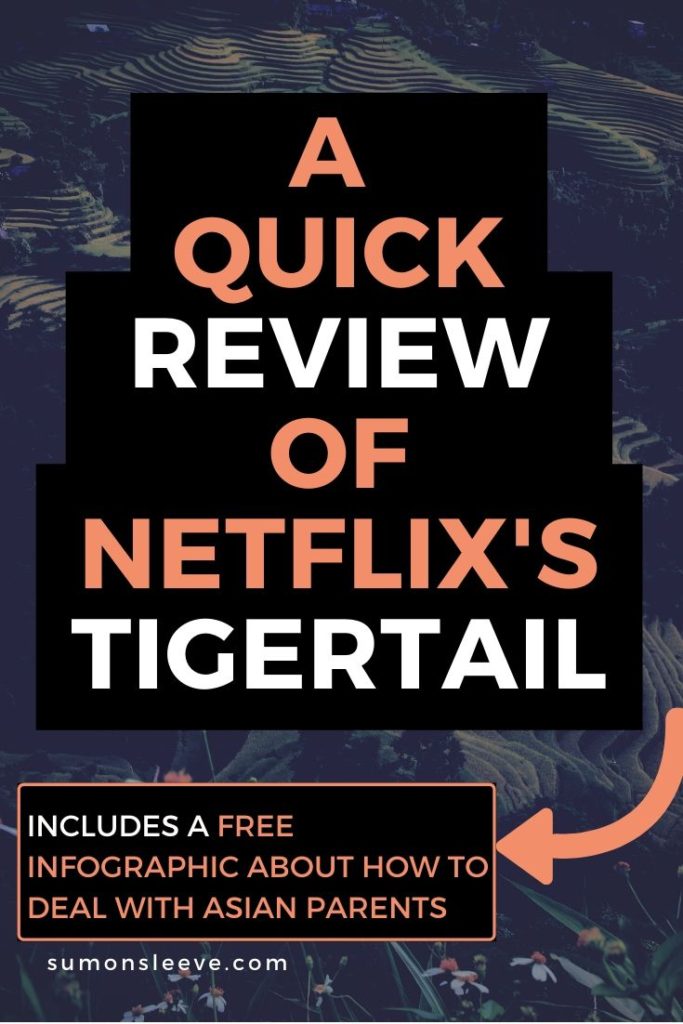Tigertail is a 2020 American drama film written and directed by Alan Yang
Here are my two cents about the film.
***SPOILERS ALERT***
For British Asian and American perspectives, check out the full article in Asienne magazine.
What were your initial thoughts of the film and first reaction(s) to seeing the trailer?
I was intrigued to see how the filmmakers will capture a story shared by so many Asians across the globe. The scene where the little boy is running in the rice paddies caught my attention. Then when it jumped forward in time, showing the boy grown up, dancing with a lady, I knew the film would take me on a journey.
What attempt does writer/director Alan Yang get “right” in this film that other filmmakers haven’t been able to do for mainstream audiences before?
It has to be the lunch scene with Pin-Jui and his daughter, Angela. He finishes eating and throws the napkin on his plate, waiting for her to finish.
That hit home because I’ve experienced that with my dad a bunch of times. He eats quickly, in silence, as though my presence is unnecessary. Sharing a meal with him means eating a meal in parallel at the same time. Conversations only occur if I initiate questions and if he decides to share something, usually a fact or news item. He’ll rarely ask questions about me. He won’t show appreciation for the time I spend with him, but deep down inside, I know he values it.
When Angela confronts her dad, sharing with him how her finance left her, Pin-Jui’s reaction and response are spot-on. Despite his indifference and lack of emotional validation, he shows a strand of remorse conflicted by feelings of helplessness. And that’s how a lot of Asian dads feel when their children express tense emotions towards them.
Did this help you understand your parents better? If so, how. Any specific scene that stood out?
The film helped validate the things I know about my parents and other Asian parents. It was interesting to compare and contrast the relationship between Zhenzhen and Pin-Jui with my parents’ marriage.
In the film, Pin-Jui married Zhenzhen for practical reasons whereas my dad was deeply in love with my mom when they got married. The only reason he agreed to immigrate to Canada was because of her. He still surprises her every now and then; just recently, he planned a Norwegian cruise for them which sadly got cancelled due to COVID.
One similarity is the struggle to survive as recent immigrants which the film showed. My dad would often share with us how half his paycheck would go to the mortgage and the other to food. There was barely anything left for non-essential purchases.
What is the number one thing you wish non-Asians would understand about the Asian immigration experience?
Don’t generalize us. If you met one Asian person and they shared their story with you, it doesn’t mean all Asians have the same story.
Although we identify as Asian, there are many cultures that exist within that identity, each with their own challenges during the immigration experience.
The best way to understand someone’s experience is to get to know them, asking questions, having an open mind and appreciating the journey that they’ve been through.
What is the biggest takeaway overall for you personally?
The strained relationship between Westernized Asian children and their immigrant parents is prevalent across the globe. Although the film recognizes this and attempts to show how it can improve (Angela travelling with her Dad to Taiwan to understand her roots), it only scratches the surface.
More dialogue and conversation needs to occur in order for us to find common ground because ultimately, as a mother of 2, I would hate it if my kids felt that way about me and/or my husband.
During this uncertain time of the COVID-19 pandemic, some are at home with their parents, struggling to maintain peace. Others are away from home, worried and frustrated about their parents.
So I published a book titled, “How To Deal With Asian Parents” and I hope to help a lot of people because as the film demonstrated, it’s an issue many Asians resonate with but doesn’t get talked about.
By sharing my stories of how I improved my relationship with my parents, I hope to inspire others to do the same. My mission is to empower individuals to talk about their feelings despite growing up in a culture that hid them.





